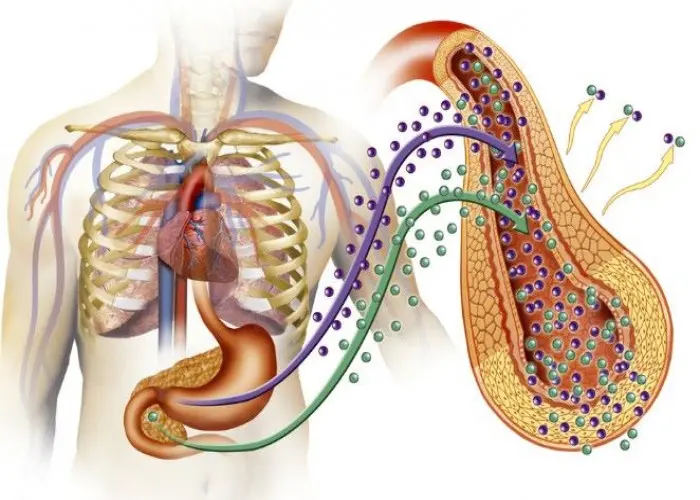 Welcome
Welcome
“May all be happy, may all be healed, may all be at peace and may no one ever suffer."
Constipation in children

Constipation is a common problem in children and is characterized by infrequent bowel movements, difficulty passing stools, or a feeling of incomplete bowel movements. It is usually caused by a lack of fiber, fluids, or physical activity in the child's diet, as well as other factors such as certain medications, health conditions, or lifestyle habits.
In children, constipation can cause abdominal pain or discomfort, irritability, and loss of appetite. It can also lead to bedwetting, which is caused by a full rectum pressing against the bladder. Chronic constipation can cause long-term problems, such as anal fissures or hemorrhoids.
Treatment for constipation in children usually involves lifestyle changes such as increasing fiber and fluid intake, increasing physical activity, and establishing regular bowel habits. Parents can encourage their children to eat a well-balanced diet that includes plenty of fruits, vegetables, and whole grains. They can also encourage their children to drink plenty of water and limit their intake of constipating foods, such as dairy products, processed foods, and fast foods.
Parents can also help their children establish regular bowel habits by encouraging them to use the bathroom at the same time every day, preferably after a meal. Parents should also make sure their children have enough time to use the bathroom and are not rushed or stressed. In some cases, over-the-counter laxatives, stool softeners, or enemas may be used to help relieve constipation in children.
It is important to seek medical attention if constipation persists or worsens, or if it is accompanied by other symptoms such as vomiting, fever, or severe abdominal pain. Additionally, parents should talk to their child's healthcare provider if they have concerns about their child's bowel movements or digestive health.
Research Papers
Disease Signs and Symptoms
- Frequent bowel movements
- Burning stomach pain
- Abdomen pain
- Hard stool
- Fever
- Blood in stool
- Swollen abdomen (Ascites)
- Weight loss
- Constipation
Disease Causes
Constipation in children
Constipation most commonly occurs when waste or stool moves too slowly through the digestive tract, causing the stool to become hard and dry.
Many factors can contribute to constipation in children, including:
- Withholding. Your child may ignore the urge to have a bowel movement because he or she is afraid of the toilet or doesn't want to take a break from play. Some children withhold when they're away from home because they're uncomfortable using public toilets.
- Painful bowel movements caused by large, hard stools also may lead to withholding. If it hurts to poop, your child may try to avoid a repeat of the distressing experience.
- Toilet training issues. If you begin toilet training too soon, your child may rebel and hold in stool. If toilet training becomes a battle of wills, a voluntary decision to ignore the urge to poop can quickly become an involuntary habit that's tough to change.
- Changes in diet. Not enough fiber-rich fruits and vegetables or fluid in your child's diet may cause constipation. One of the more common times for children to become constipated is when they're switching from an all-liquid diet to one that includes solid foods.
- Changes in routine. Any changes in your child's routine — such as travel, hot weather or stress — can affect bowel function. Children are also more likely to experience constipation when they first start school outside of the home.
- Medications. Certain antidepressants and various other drugs can contribute to constipation.
- Cow's milk allergy. An allergy to cow's milk or consuming too many dairy products (cheese and cow's milk) sometimes leads to constipation.
- Family history. Children who have family members who have experienced constipation are more likely to develop constipation. This may be due to shared genetic or environmental factors.
- Medical conditions. Rarely, constipation in children indicates an anatomic malformation, a metabolic or digestive system problem, or another underlying condition.
Disease Prevents
Constipation in children
To help prevent constipation in children:
- Offer your child high-fiber foods. A diet rich in fiber can help your child's body form soft, bulky stool. Serve your child more high-fiber foods, such as fruits, vegetables, beans, and whole-grain cereals and breads. If your child isn't used to a high-fiber diet, start by adding just several grams of fiber a day to prevent gas and bloating.
- The recommended intake for dietary fiber is 14 grams for every 1,000 calories in your child's diet.
- For younger children, this translates to an intake of about 20 grams of dietary fiber a day. For adolescent girls and young women, it's 29 grams a day. And for adolescent boys and young men, it's 38 grams a day.
- Encourage your child to drink plenty of fluids. Water is often the best.
- Promote physical activity. Regular physical activity helps stimulate normal bowel function.
- Create a toilet routine. Regularly set aside time after meals for your child to use the toilet. If necessary, provide a footstool so that your child is comfortable sitting on the toilet and has enough leverage to release a stool.
- Remind your child to heed nature's call. Some children get so wrapped up in play that they ignore the urge to have a bowel movement. If such delays occur often, they can contribute to constipation.
- Be supportive. Reward your child's efforts, not results. Give children small rewards for trying to move their bowels. Possible rewards include stickers or a special book or game that's only available after (or possibly during) toilet time. And don't punish a child who has soiled his or her underwear.
- Review medications. If your child is taking a medication that causes constipation, ask his or her doctor about other options.
Disease Treatments
Disease Diagnoses
Disease Allopathic Generics
Disease Ayurvedic Generics
Disease Homeopathic Generics
Disease yoga
Constipation in children and Learn More about Diseases

Popliteal artery aneurysm

Goiter

Diabetic hyperosmolar syndrome

Broken ankle

Thrombocytosis

Diabetic ketoacidosis (DKA)

Paget's disease of the breast

Fibrous dysplasia
Constipation in children, বাচ্চাদের কোষ্ঠকাঠিন্য
To be happy, beautiful, healthy, wealthy, hale and long-lived stay with DM3S.
